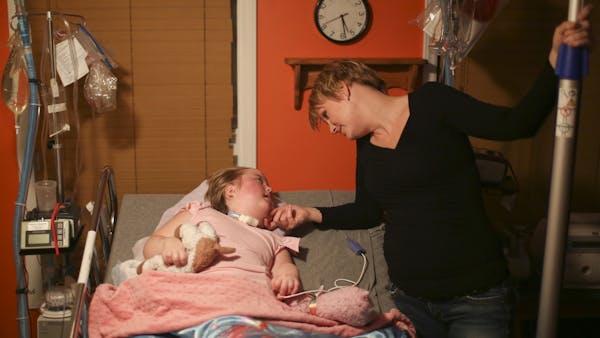An ambitious effort to intensify criminal background checks for tens of thousands of Minnesota caregivers will roll out this month as state officials respond to reports that people with criminal histories were caring for the elderly and other vulnerable populations.
At five nursing homes across the state, from Sauk Rapids to Eveleth, the Minnesota Department of Human Services will test a new electronic system of fingerprint-based background studies.
By January, every newly hired worker who cares for children, the elderly and people with disabilities receiving care at home or in state-licensed facilities will be required to be fingerprinted and photographed at designated stations across the state.
Over time, 150,000 to 200,000 caregivers in Minnesota are expected to undergo the new procedures, in what amounts to the most ambitious expansion of state caregiver screening since the state began conducting background checks in 1991.
Human Services Commissioner Lucinda Jesson said Friday the system will increase the accuracy and speed of background checks while bringing Minnesota in line with many other states. "Our background studies will be more accurate, and we will get more timely results," she said.
A Star Tribune investigation last fall found that licensed nurses in Minnesota can practice for years despite histories of serious criminal convictions, from assault to stealing drugs. Responding to news reports, the 2014 Legislature and the Department of Human Services created the tighter procedure, using fingerprints and computer court records.
1,200 checks a day
State authorities have no automatic way of knowing when a caregiver commits a crime, because workers at state-licensed facilities have to undergo background checks only when they switch employers. So long as a worker sticks with a single employer, serious criminal offenses can go undetected for years.
Just Friday, a person with a conviction for felony second-degree assault was prevented from working as an unsupervised caregiver in a person's home because of a background check by the Department of Human Services, officials said.
About 250,000 Minnesota caregivers undergo state background checks each year, but some 2,500 pass despite having criminal records, according to state estimates.
The Department of Human Services conducts about 1,200 background checks a day, or more than 275,000 a year, based primarily on a person's name and date of birth. About 85 percent of these checks are completed within 48 hours, but many are delayed for weeks because of "false hits" on people with the same or similar names.
Under the new system, regulators will receive regular updates on criminal proceedings from the state court information system, so officials will know within hours whether a caregiver has been convicted of a crime.
New 'one and done' checks
Often, nursing homes become aware of a caregiver's criminal offenses only after the person has been caught stealing money or drugs from residents, say care providers.
"If there was a quicker system to say, 'Hey, so and so just got busted in an OxyContin scam or a drug theft,' that would be very relevant if that person has potential access to narcotics in your hospital or nursing home," said Doug Beardsley, a vice president at Care Providers of Minnesota, a trade association that represents more than 800 senior care providers.
Starting in January, fingerprints and photographs will be taken at about 50 stations across the state. Generally, these workers will no longer need to undergo another background check each time they change jobs, reducing costly duplication. "It's one and done," said Jerry Kerber, the department's inspector general, of the new system.
In extreme cases, the state has conducted more than 100 background checks on individual caregivers over the years as they move from employer to employer.
A $3 million grant from the federal Centers for Medicare and Medicaid Services will pay for starting the new system. At least 18 other states have adopted a similar fingerprint-based background check system.
Chris Serres • 612-673-4308
Twitter: @chrisserres

